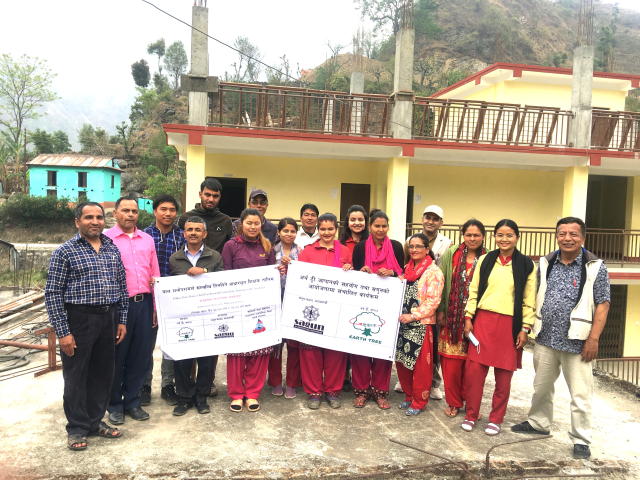Indrasarowar Rural Municipality, Nepal
In Nepal, 2,000 people leave the country every day. Indrasarowar is no exception. The state of education here is serious. The dropout rate is very high. Poverty, remoteness, lack of knowledge about the importance of education are the main factors. Even when students graduate from high school, there are no jobs. Wealthy families send their children to school in the city or move to the city. Schools are being consolidated due to depopulation. This vicious circle must be broken.
Following the development model created during the ” Sharing Happiness Movement” in the Roshi region from 2007 to 2021, Earth Tree and SAGUN have been working with the local government from the very beginning to improve the quality of education in the region and to empower young people to take action with the goal of “creating a happier society.
“Empowering People, Developing Community”
Our goal is “Quality Education“! To empower young people to put into practice what they have learned.
By involving local people, parents, and youth in our movement, we promote community revitalization with a focus on “quality education” with the slogan, “Good work cannot be done without good relationships”. Earth Tree provides emotional and financial support while building better relationships with local people through communication and monitoring, sharing the progress of the program through our newsletter, website, email newsletter and debriefing sessions, and providing opportunities to learn about Nepal.

Article Writing Training for High School Students
Indrasarowar is home to vulnerable people due to ethnic minorities, low caste and poverty. “Article Writing Training” is a popular program to learn how to write sentences so that they can express their opinions in writing. The excellent works of the training participants are published in the regional information magazine “Roshi Lahar”.
Child Psychosocial Counseling Training for Teachers
Some children are anxious about their future because they cannot find a job even after graduating from high school. Teachers who have learned about children’s psychosocial problems and their impact on society through counseling training are motivated to put what they have learned into practice and to study more.
Other Trainings
SAGUN trains teachers and parents to provide interactive education that leads to reflection and action on social injustice. In addition, SAGUN contributes to the promotion and dissemination of the government’s “Child Friendly Community Development”, which is a government initiative and consists of efforts to create child-friendly communities (there are 41 indicators, including the provision of necessary vaccinations, the creation and implementation of action plans to reduce child marriage, child labor, violence and abuse, and the thorough implementation of basic education).




